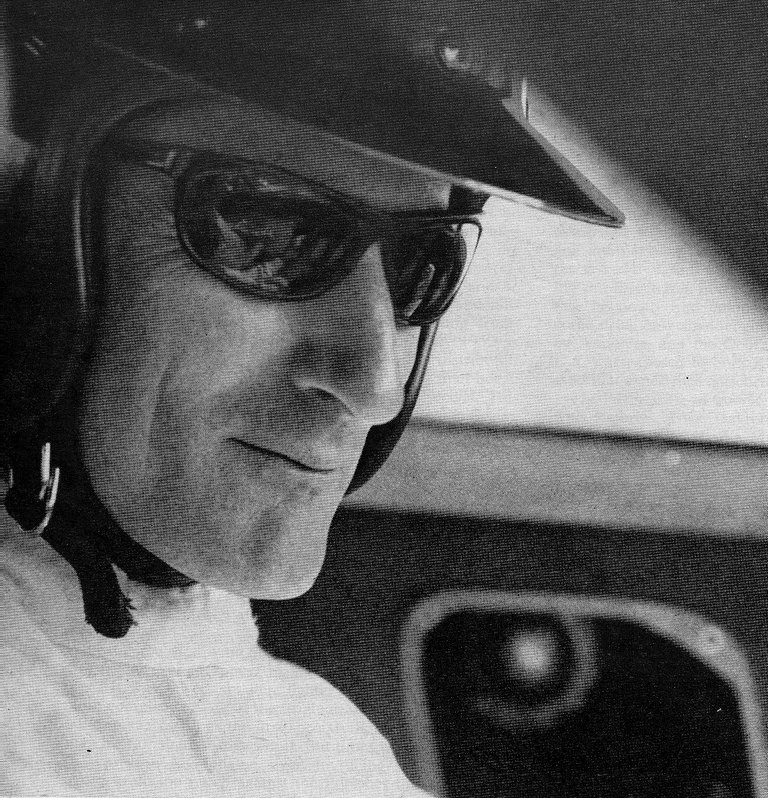
Launched in 1963 advertising campaign FoMoCo "Total Performance", of course, drew attention to the big car victories with the Ford V8 and attracted Shelby to finalize the unsuccessfully debuted GT40.
While Carroll Shelby throws all the resources into the development of this car, Ken Miles becomes his indispensable test driver who perfectly feels the car and understands what and how it needs to be changed in order to achieve the desired result.
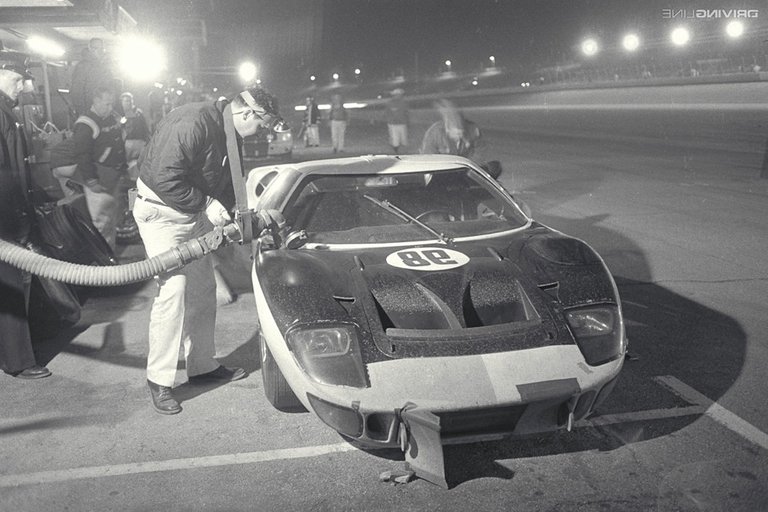 In Dayton
In Dayton
In early 1966, in Dayton's 24-hour race, the new 7.0-liter Ford GT40 won its first victory. All this time, the car was driven by Ken Miles, 48, and his partner, Lloyd Ruby. In the 12-hour race in Sebring, the same crew became the triumphs, however, this victory at Ford was unhappy. Miles went second, and, ignoring orders from the boxes, put pressure on team-mate Dan Gurney, while he did not deny the checkpoint.
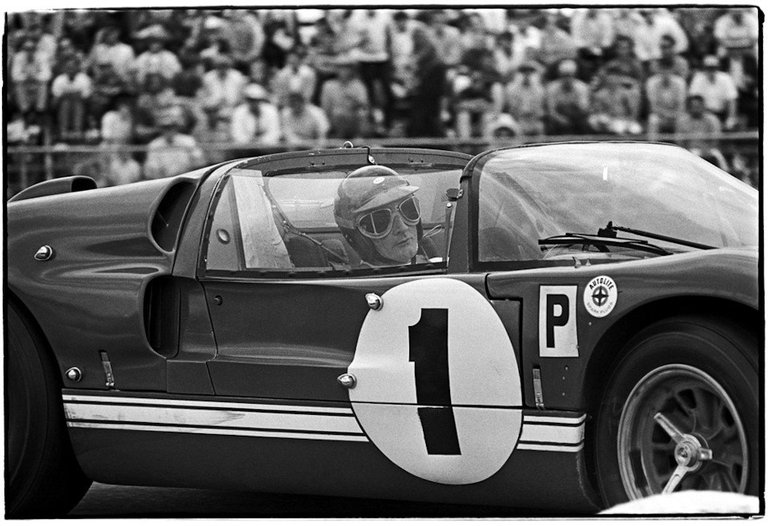 In Sebring
In Sebring
It was time for the main battle. To Le Mans in 1966, the Englishman was replaced by a partner - Ruby was in a plane crash and his place was taken by Denny Hulme. Their crew set the speed and had no competitors either among other brands, or among the GT40. However, by the end of the race, the head of the racing program Ford, Leo Bibu, came to mind a brilliant thought, he thought. Three Ford cars had to simultaneously cross the finish line, thus demonstrating their overwhelming superiority over rivals. The head of the corporation Henry Ford II supported the idea.
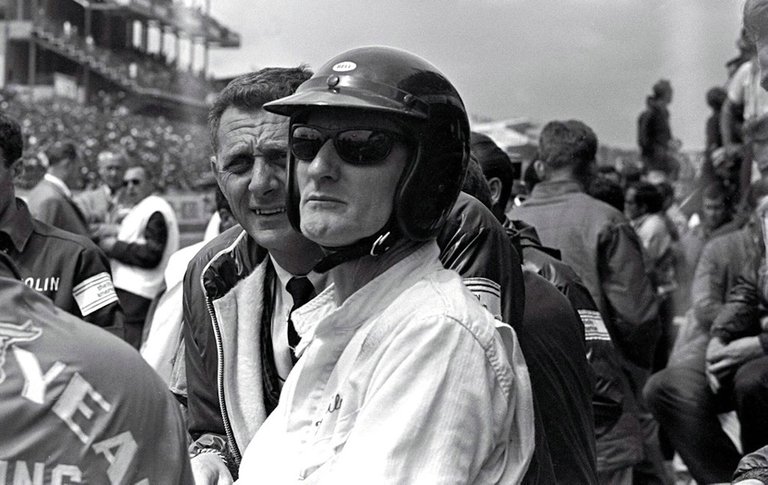 In Le Mans
In Le Mans
When, at the pit stop, Beebe informed Ken Miles, who was leading on a half circle, about the need to slow down and let him join his teammates, but his rivals, he was just furious and broke his sunglasses against the asphalt furiously. "This ends the contribution to this bloody race," Ken cried. But the Briton could not disobey the head of the company, as he substituted the comrade, Carroll Shelby, who was close to him.
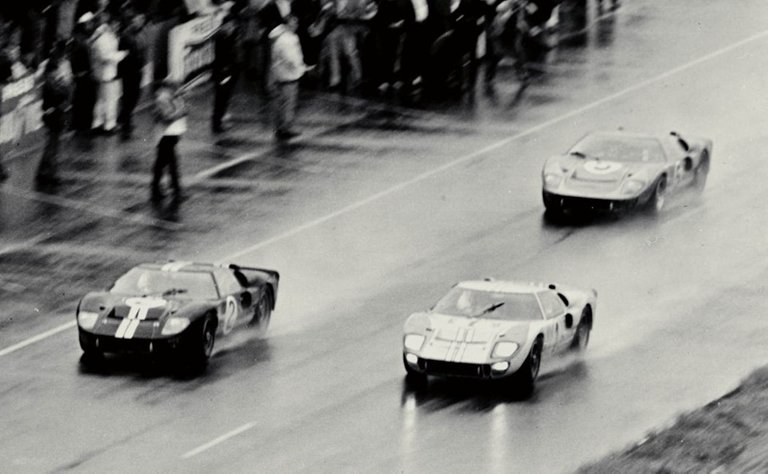 Legendary finish
Legendary finish
Ford GT40 under the number "1" and number "2" crossed the finish line at the same time, behind the 12 laps number "5" was immediately after them taking away the bronze. But the situation with the distribution of the first and second places came out very ugly. Miles and Hulme were confident of their victory, but according to the rules of Le Mans, starting five positions behind him, Bruce McLaren overcame a greater distance in the course of the race, because he was recognized as the winner. "I felt like I was being raped," Miles said.
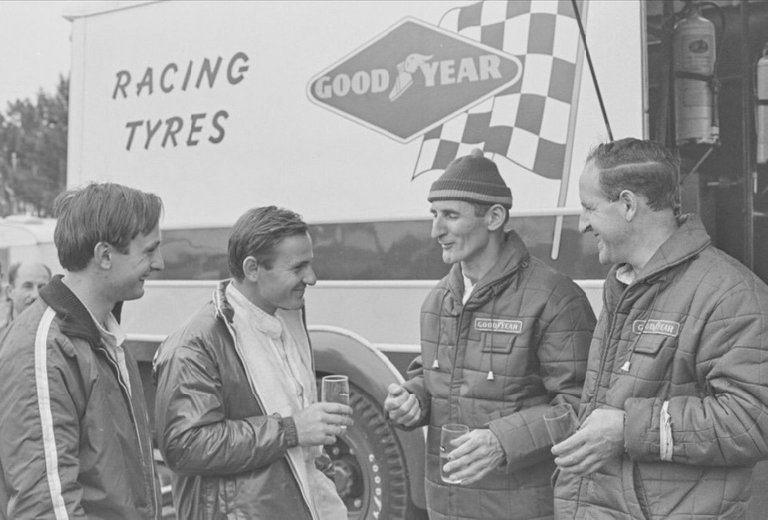 Chris Amon, Bruce McLaren, Ken Miles and Danny Halm
Chris Amon, Bruce McLaren, Ken Miles and Danny Halm
It should be noted that Bruce McClaren did not want such a victory and was puzzled by the current situation. However, after the awards, in the pits, Ken tightly embraced his partner and congratulated him on winning. Officially, Yastreb said that he was disappointed, but what can you do about it? Carroll Shelby, already afterwards, reproached himself for not defending the interests of Miles, who could take three cups in a row in the endurance race, which is very prestigious.
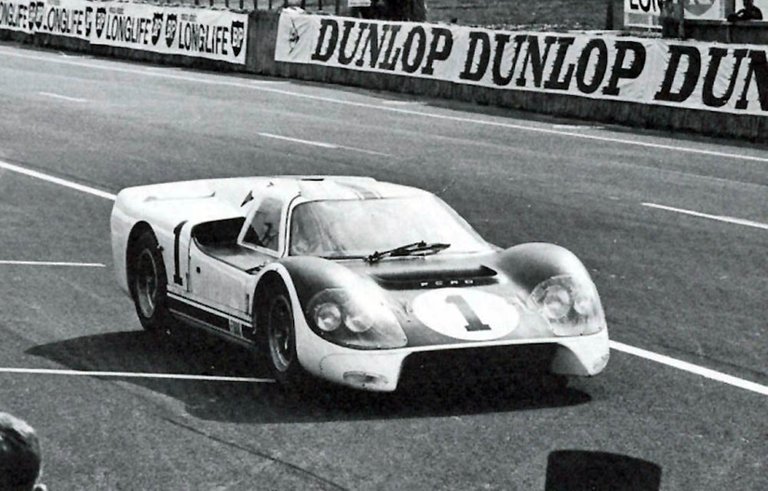 The car on which Miles crashed
The car on which Miles crashed
Nevertheless, the British remained in the team and worked on improving the model in 1967. August 17, 1966, he was reeling around the circle on the California highway Riverside International Raceway. At the end of the long straight line, where the speed exceeds 300 km / h, his car suddenly loses control, and, without reducing speed, flies out of the track, repeatedly flying up into the air, turning and falling apart. Ken was thrown out of the car, he died instantly. The rider's body was cremated, and the name gradually began to be forgotten.
This, it would seem, is the end of the story, but perhaps it is not so. In the late 1980s, a former police officer from California, an automotive enthusiast and a Ford sports collector, Fred John, digging up police archives, found two different testimonies about the death of Ken Miles, prompting him to investigate. During the conversation with the doctors who were present on the track on the day of the accident, it was found out that some claimed that the rider's body was disfigured, the head was separated from the trunk, while others assured him that they were still breathing in the ambulance. Also, no documents were found on the fact of cremation and evidence of the burial of the ashes.
Later, the retired cop found in the tiny town in Wisconsin an old man who showed him the rights to the name of Kenneth Henry Miles, born in 1918, who claimed that he was the same driver. The old man lived in an abandoned school bus and earned a living by mowing lawn mowers and other farm machinery. Jones said that his interlocutor knew a lot about car racing, Carroll Shelby and other racers, and also managed with his Ford Torino, but complained about the failures in his memory. He was also embarrassed by the lack of accent and earlobes of the old man's ears, which did not look like a racer's photo.
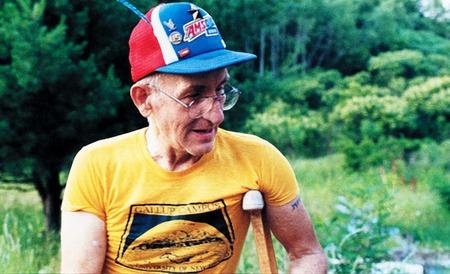
The same old man
To the question: "What happened to you?", The old man replied that Ford did not want their name to be associated with the disabled rider, and he was offered to disappear for $ 2 million. He moved with his family to Hawaii, but his wife and son later abandoned him, taking the money. The detective talked about this story with Carroll Shelby himself, and, according to him, after the question, Shelby dropped a plate of food from his hands and changed in the face, but did not answer.
The story is very strange: why, if it is a real Ken Miles, he never told the general public about his fate; However, on the other hand, the old man who introduced himself by this name did not flaunt regalia at all, never sought popularity, and Ken Miles' name is very far from John Kennedy or Elvis Presley in order to spin conspiracy theories around him. In addition, to take up arms around the world and shut yourself up in such a situation was quite in the spirit of the Hawk. In any case, this is another great story, connected with our favorite motor racing.